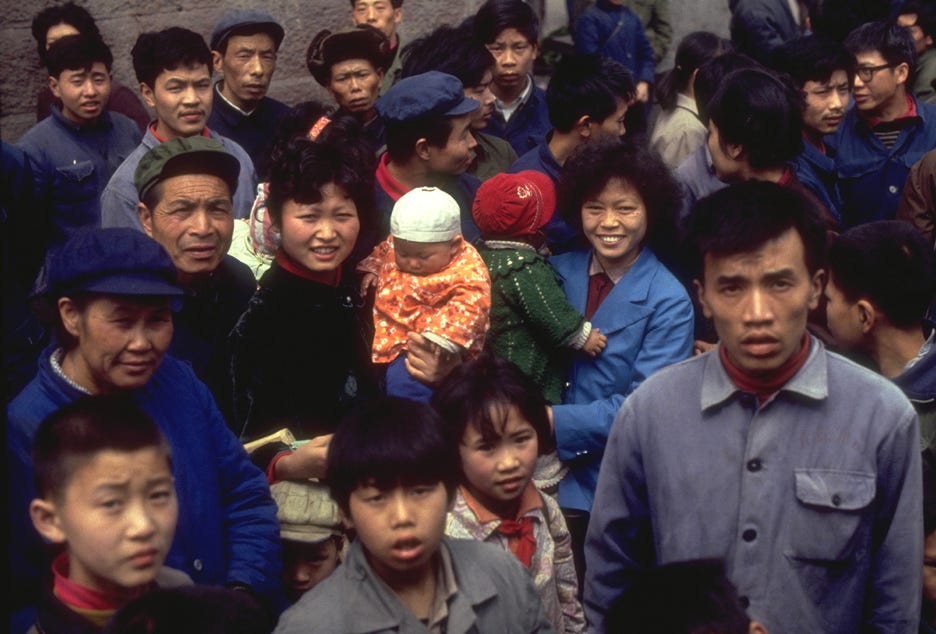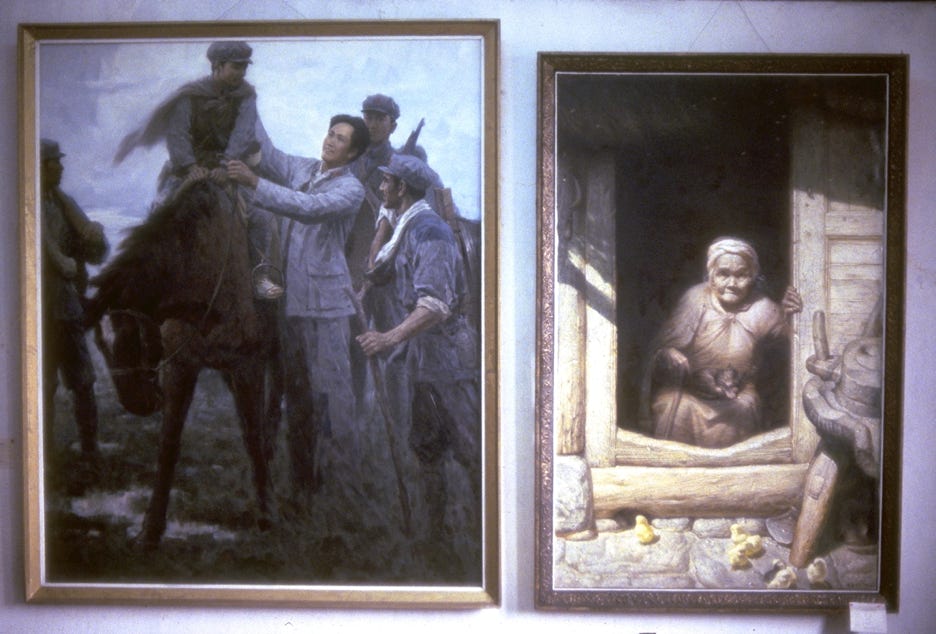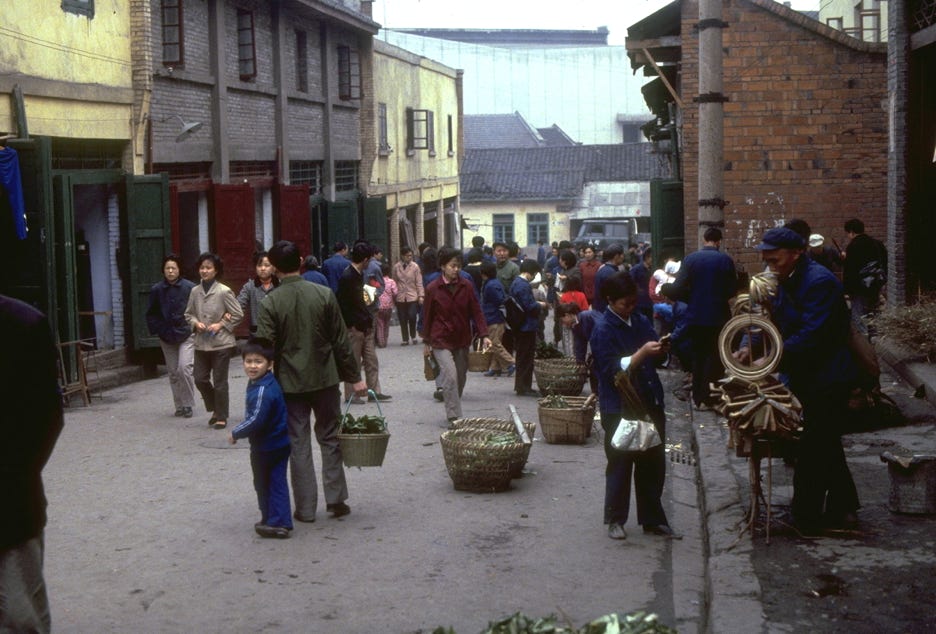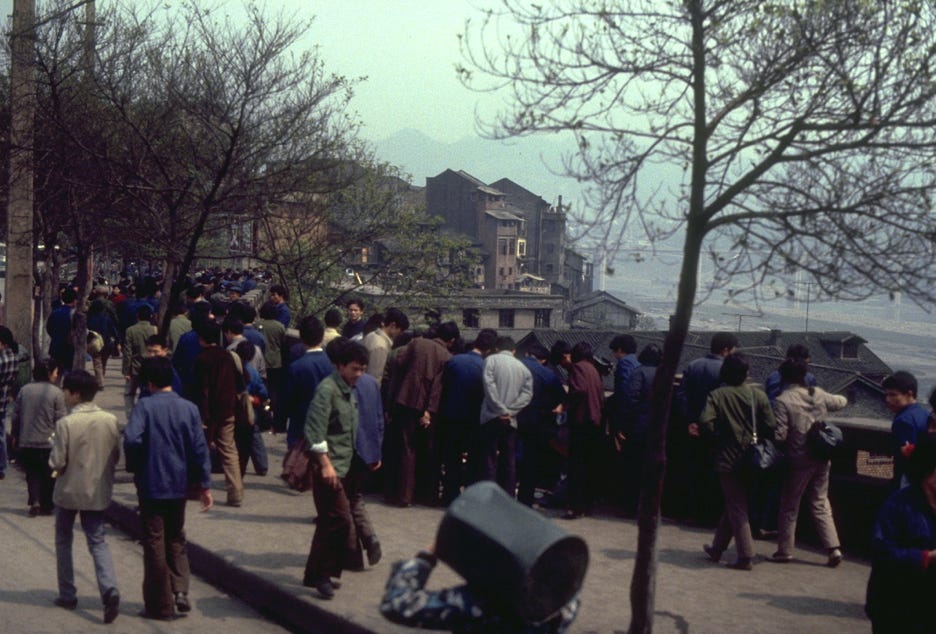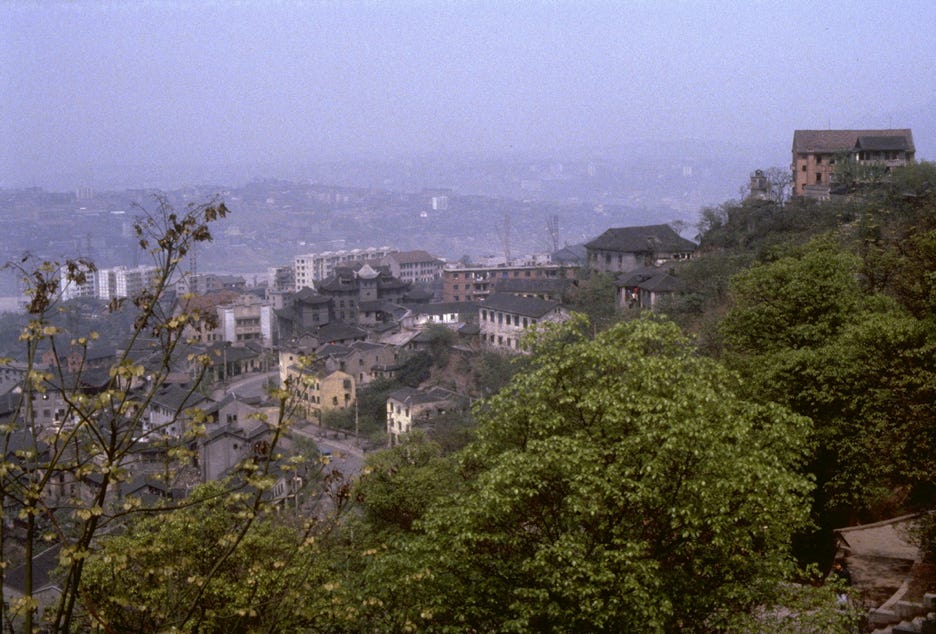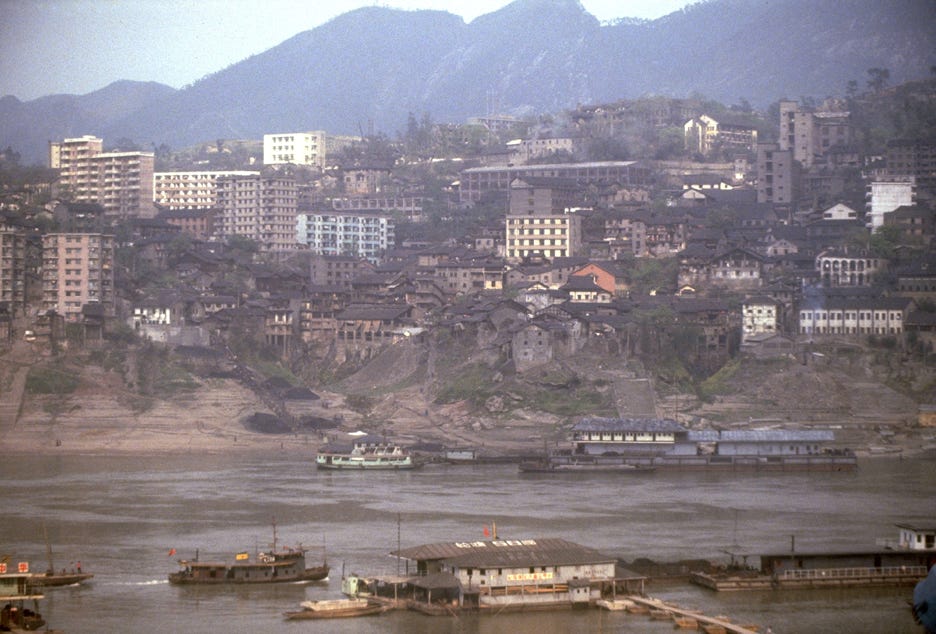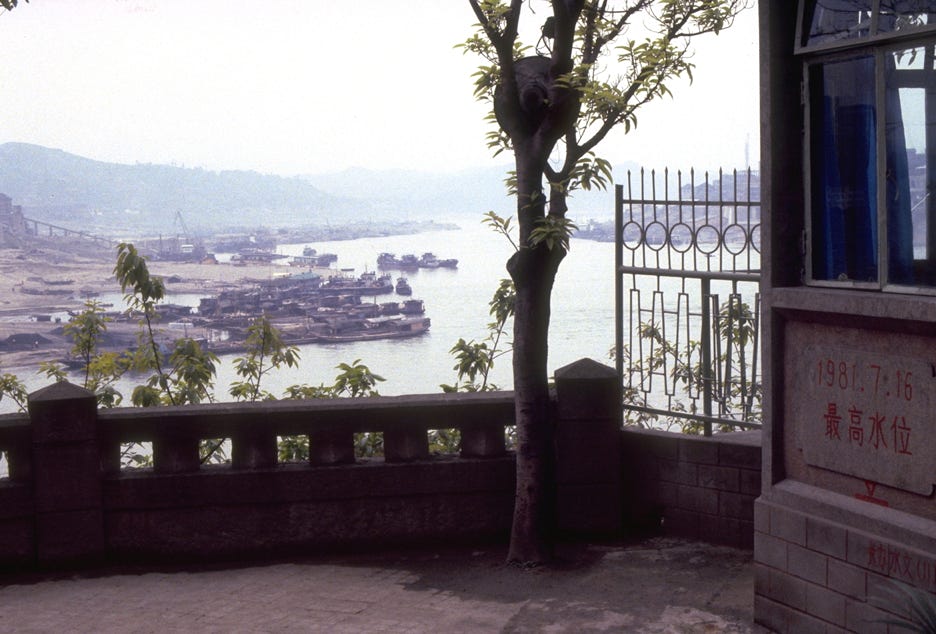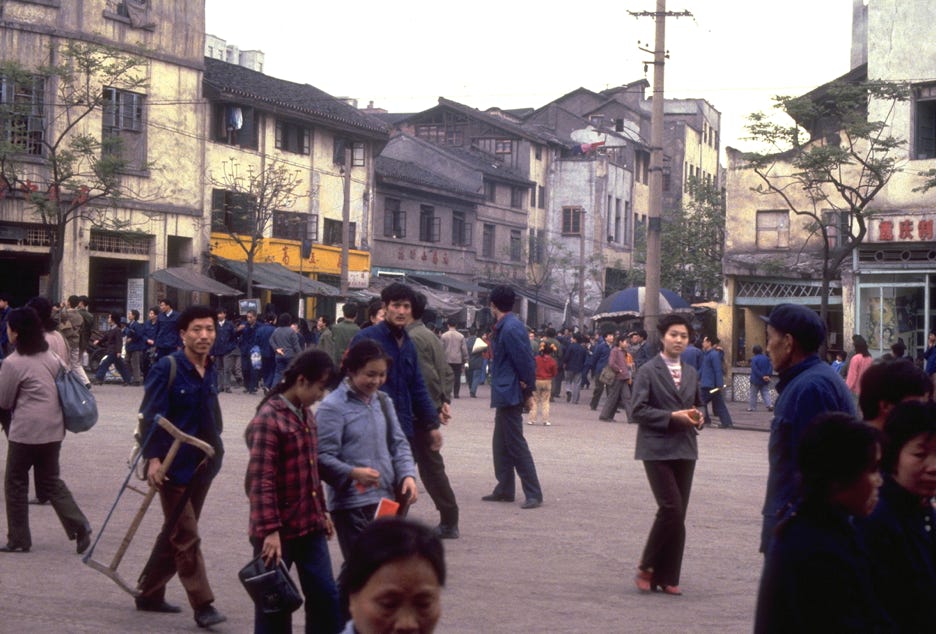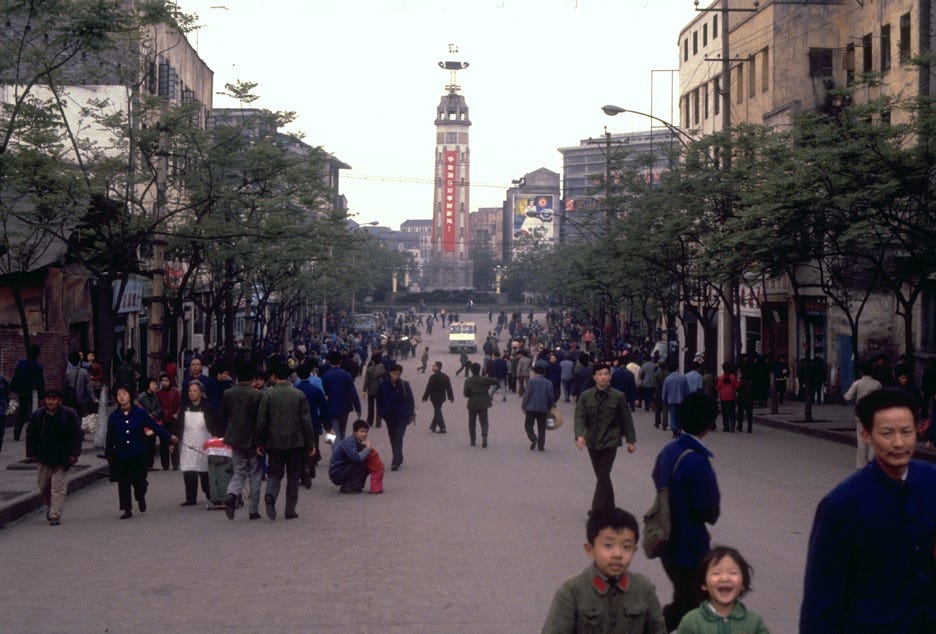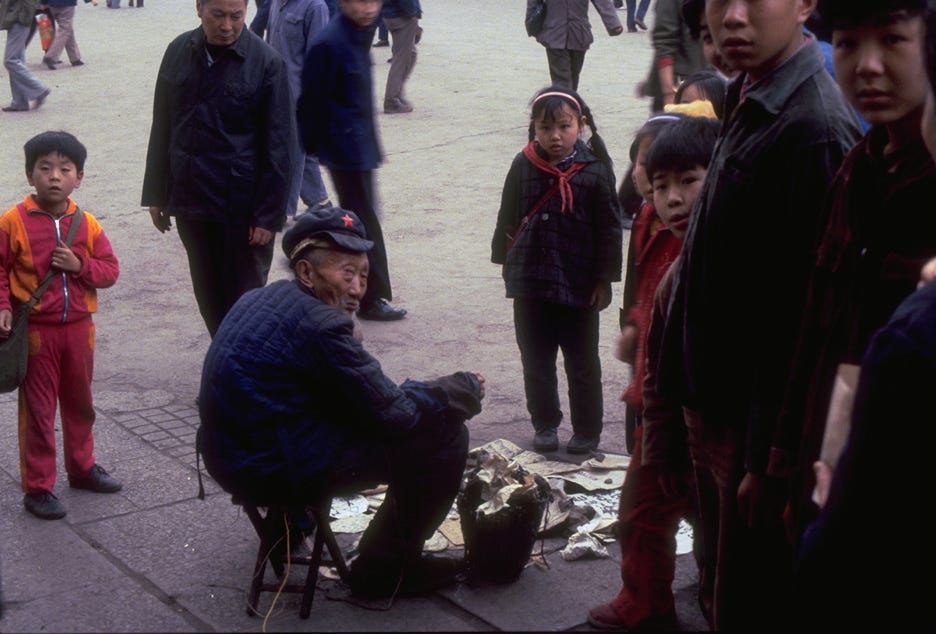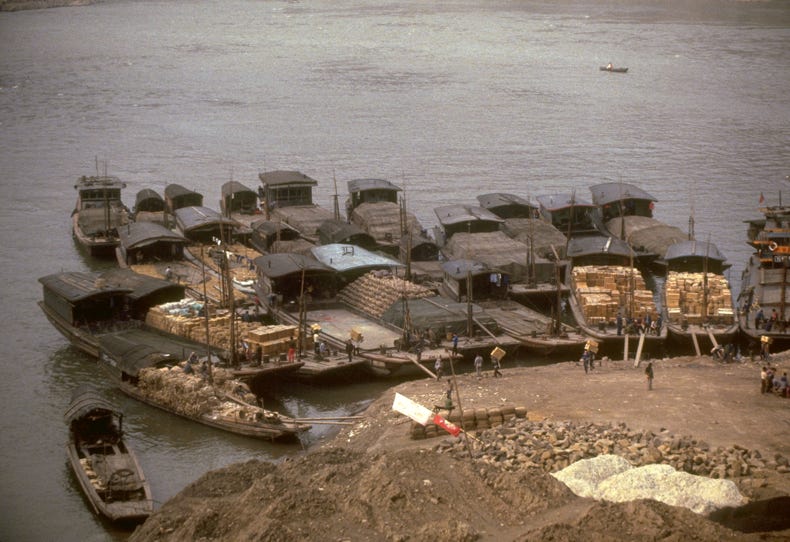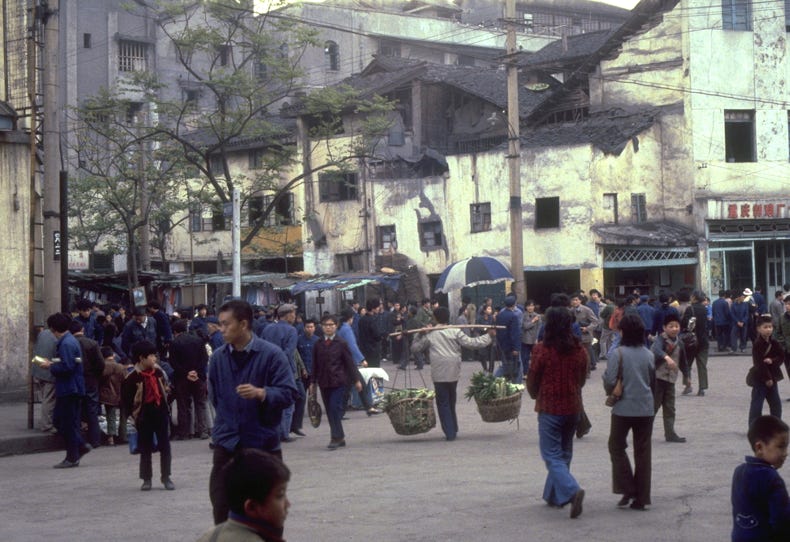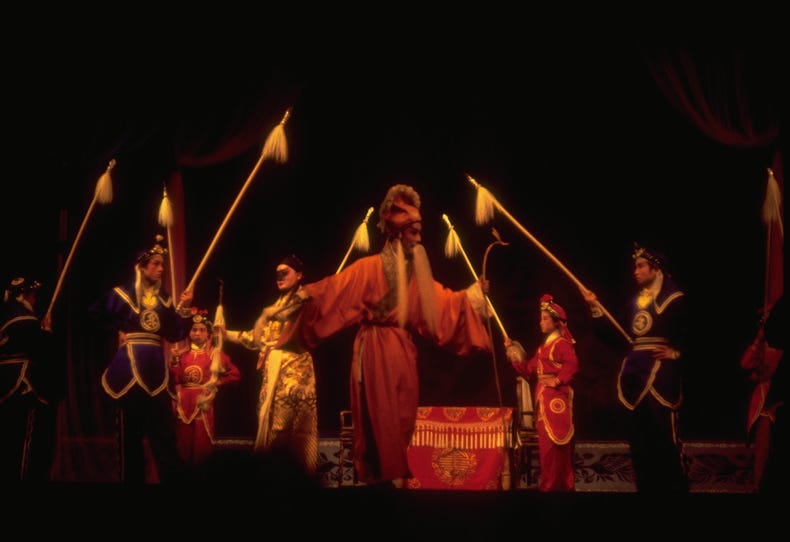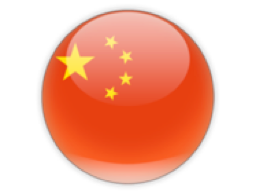

The four page letter I wrote yesterday seems to have exhausted the Yizhou Hotel’s supply of writing paper, so one of my priorities today was to buy an airmail writing pad. I did so this afternoon while we were given an hour to wander around Chungking city. I don’t go to the friendship Stores any more, as they are rip-offs compared with the stores for local people – which I can use with the help of my phrase book.
The small store from which I purchased my writing pad had an elderly salesman who spoke slow, deliberate, but grammatically perfect English. He said he learned English during World War II, and he hadn’t had a chance to use it again until today! Although he tried to hide it, he was obviously tickled pink to speak with me in English in front of his colleagues, and we could all sense his prestige rising. By the time my purchase was completed, about 50 onlookers had assembled to watch proceedings, and they spontaneously applauded us both at the conclusion of the unknown spectacle of seeing a non-Chinese person buying something from a local store.
The citizens of Chungking appear more rural than those of Kunming, with a strong peasant mentality. Their faces are full of character, particularly the older ones, of whom there are many. Everywhere we went today, a crowd gathered around just to stare at us, often open-mouthed. At first it quite off-putting, but as soon as we learned to smile or say “ni hao”, we saw their faces light up and they would wave enthusiastically. The staring is obviously simple curiosity.
Mothers obviously love their children dearly. In contrast with their own plain blue or grey clothes, the children are dressed warmly in bright, vibrant colours. We learned that like mothers everywhere, they love it when others admire their children, which is very easy to do, and will usually only agree to have their photo taken if they think you are getting a photo of their children. Perhaps the new government regulations requiring urban couples to have only one child, while allowing rural couples to have two, has served to strengthen the traditional Chinese love for their children. In that context, you can imagine how bad I felt when I kept causing little children who saw me walking in the street to scream in terror and run to their parents for a comforting hug. Apparently they had never seen a foreigner before, and it was especially perturbing when I was walking along the street with one of my tour companions who is 6 feet 5 inches tall and has red hair.
Like Kunming, Chungking is a remarkably clean city. The streets are immaculate because of the constant sweeping by hand, and when people have colds, they wear square face masks over their noses and mouths until they have cleared up. On the other hand, spitting is commonplace, and when people blow their noses they place a finger on the outside of each nostril and blow, allowing the mucus to fall in a stream down onto the street. It is only when they have finished doing this that they wipe their noses with a handkerchief. This habit is regarded as cleanliness as they do not want to be carrying a dirty handkerchief around in their pockets.
We started this morning with a visit to the Szechuan Institute of Fine Arts. Because it was Saturday, the students were having their day off, and so we did not see any work being done. However, the exhibition was outstanding. Chinese art has diversified in style quite considerably in recent years, and now blends Chinese with foreign art styles to create some stunning visual effects. They did have the inevitable sales point, and once again did brisk business with some of my fellow travellers.
From there we went to downtown Chungking to walk through a free market. Free markets are a very new innovation in which farmers are permitted to sell their produce directly to the public, by-passing the hitherto compulsory state distribution system. Farmers generally keep the best quality produce for the free markets (selling lower quality produce to the government) because they can get top prices which they can keep for themselves.
The free market was a hive of vibrant activity, although difficult for picture taking because our group attracted so much attention. A crowd gathered around each of us while walking through the market simply to stare at us, mothers pointing us out to their young children, and so on. You can probably imagine the crowd that gathered around me when I had to change the film in my camera, followed by another hearty round of applause when the task was complete.
Most of the stall were selling various types of food, most of which I could not identify. I could, however, identify the live chooks and eels being sold for food. The people of Chungking obviously like their food to be fresh, and it is very sensible to sell live food in an environment where large-scale refrigeration is both expensive and difficult.
I can understand why they call Chungking the mountain city; it is mostly built on cliffs, which helps explain why there are far fewer bicycles here than in Kunming – travel is by foot or by bus. The buses include trolley buses in steep areas, and there are some buses with large gas bags on top of them. Many of the buses are actually made in Chungking. There are several tunnels built through the hills because they are too steep to build roads over the tops. There is also a cable car linking the two sides of the Yangtze River, which flows through the city.
After lunch we went to Loquat Hill for an overview of the city. There are more old buildings in Chungking than in Kunming, but this is to be expected from the different ages of the two cities. Most of Chungking’s buildings seem to have been since 1949 though, and looking at the remaining old buildings serves as a reminder of the tremendous progress that has been made. Like Kunming, construction is very widespread.
Just near Loquat Hill was the Chungking Museum, which we visited for 45 minutes (cut down from the scheduled two hours). The 45 minutes was more than enough time to look over the exhibits and for several of my fellow travellers to purchase copious souvenirs.
From the Museum we drove to a lookout which overlooks the junction of the Yangtze River and its major tributary, the Jialing River. This provided us with a small foretaste of the Yangtze River cruise to come. Perhaps the most noteworthy point was a bench mark marking the high point of the July 1981 floods last year. Although the lookout was about 50 metres above river level, we would have been wading in water at the time – and that’s a lot of water for a huge river valley! Leaving the confluence, we travelled to downtown Chungking for our one hour wander.
As there as so few vehicles of any type in Chungking, people walk on the roads at will. However, when a vehicle approaches, it is invariably blowing its horn, and of course it has right of way. Consequently, vehicles neither slow down nor deviate for anyone.
Rather than returning to the hotel for dinner, we ate at a local restaurant in town, surrounded by local populace. It was a fantastic experience, although as is now the usual case, I hardly recognised anything that I ate.
After dinner we went to a local Chinese opera. The costumes were visually stunning but the “music” was all drums and incessant gongs. I felt the performance had an elusive charm. It was traditional opera with no revolutionary or political overtones. We were the only non-Chungking people present, and the large hall was filled to capacity, mostly with older peasant-types of people. We could tell very easily from the expressions on their faces that they loved every minute of the performance. However, the rhythm of the “music” was perforated by the audience’s universal practice of sucking mucus up loudly from the depths of the backs of their throats and then spitting it out in loud splats onto the bare concrete sloping floor beneath us. There was so much of it that I was genuinely concerned that a river of it would start to flow down the floor from higher floor behind my seat, so I thought it prudent to life my camera bag off the floor and place it on my lap instead.

